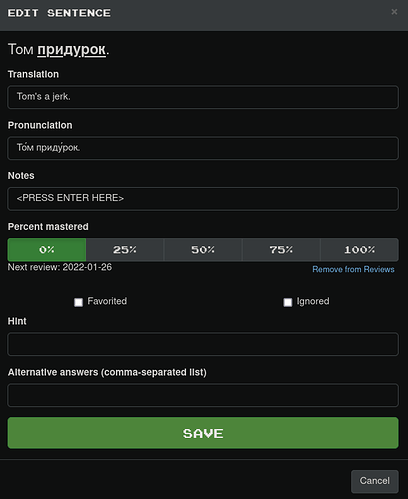“Privet” is a transliteration, not a literal translation, so I think you’re asking for transliterations. I can see how transliterations might be useful with a language like Chinese, which uses ideograms rather than an alphabet. But with Russian, they might actually be counterproductive.
Russian is a nearly phonetic language, in which it is possible to predict the pronunciation (except for where the accent falls – I’ll get back to that) of nearly any word from its spelling. The Russian alphabet, with its 33 letters, is very good at representing the pronunciation of Russian words. By contrast, the English alphabet is bad at representing the pronunciation of Russian words. There are some sounds present in Russian that are not present in English, and there are some English letters and combinations that can be pronounced in a variety of ways. Looking at привет, the example you chose, “privet” is not a good representation of the pronunciation because the Russian “e” is pronounced more like “ye”. But “privyet” is not a great representation of the pronunciation, either, for a variety of reasons. For instance, the “y” part of “ye” doesn’t last as long as in English. And how would you represent a word like бык? “Byk”? “Bik”? “Book”?
Many learners of Hebrew, another nearly phonetic language, use transliteration, and I can tell you from experience that it really holds them back. When two letters are transliterated the same, they can’t remember which one to use.
There are really only two tricky things in Russian spelling:
(1) unaccented о is pronounced the same way as а
(2) the letter ё, which is always stressed and pronounced more or less like “yo”, is often written without the dots, meaning that it’s written identically to е, which may or may not be stressed, and is pronounced more or less like “ye”
So the place where the accent falls, which is important in its own right, also can tell you how to pronounce these vowels. That’s why showing the sentence with Russian letters with every stress indicated by an accent mark, and every ё written as ё, gives you all the information you need, while a transliteration would actually subtract information.



